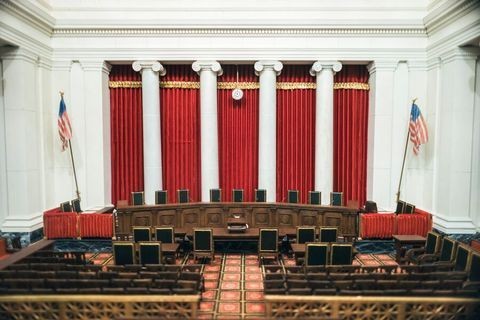Supreme Court Rejects SEC's Ability to Seek Civil Penalties More than Five Years after an Alleged Fraud
Client Alert | 1 min read | 03.01.13
Earlier this week, the U.S. Supreme Court unanimously rejected the Securities and Exchange Commission's argument that the five-year statute of limitations period in 28 U.S.C. § 2462—the default limitations provision that governs civil penalties—begins to run when the fraud is discovered, not when the underlying violation occurred. Gabelli v. Securities and Exchange Commission (Feb. 27, 2013). The Court held that the discovery rule, which tolls the statute of limitations when a defendant's fraud prevents the plaintiff from realizing the injury, does not apply to government enforcement actions for civil penalties.
In Gabelli, the SEC filed fraud charges against individual defendants based on allegations of market timing. Although the SEC alleged violations from 1999 through August 2002, it did not file its complaint until April 2008, well after the five-year statute of limitations had lapsed. In an opinion by Chief Justice Roberts, the Court soundly rejected the SEC's request to apply the discovery rule, holding that "the five-year clock begins to tick [] when a defendant's allegedly fraudulent conduct occurs." The Court stressed that the "SEC as enforcer is a far cry from the defrauded victim the discovery rule evolved to protect" and recognized that, as a practical matter, the limitations period should not depend on the speculative nature of when a government agency—"with hundreds of employees, dozens of offices, and several levels of leadership"—knows or should know of a violation.
The Court's Gabelli decision may serve as a wake-up call to the SEC to hone and accelerate its investigation and enforcement practices. It may also have the immediate effect of increasing the number of SEC Staff requests for tolling agreements. In addition, the Court's decision will likely cause certain SEC inquiries to end with no enforcement action at all, given their age and investigative pace. Notably, the Gabelli decision only addresses civil monetary penalties and does not affect the SEC's other enforcement tools, such as injunctions and other forms of equitable relief.
Contacts
Insights
Client Alert | 6 min read | 02.27.26
The U.S. Supreme Court’s February 20, 2026, opinion in Learning Resources. v. Trump (decided with Trump v. V.O.S. Selections), holding that the President lacks authority to impose tariffs under the International Emergency Economic Powers Act (IEEPA), is notable for many reasons — including its practical impact on the many U.S. companies who paid steep tariffs on global imports and may now be able to recover by filing suit before the Court of International Trade (CIT). That possibility and the key reasons for the High Court’s decision are discussed in our recent alert on this momentous decision.
Client Alert | 4 min read | 02.27.26
New Jersey Expands FLA Protections Effective July 2026: What Employers Need to Know
Client Alert | 3 min read | 02.26.26
Client Alert | 4 min read | 02.26.26



